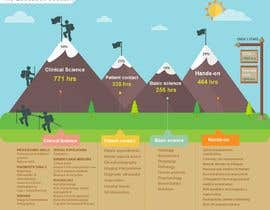Nourishment And Its Relevance In Pain In The Back Control: Foods To Favor And Foods To Stay Clear Of
Nourishment And Its Relevance In Pain In The Back Control: Foods To Favor And Foods To Stay Clear Of
Blog Article
Short Article By-Mcclure Hardin
When it concerns managing your pain in the back, the food choices you make can dramatically impact exactly how you feel each day. Think of having the ability to ease your discomfort just by adjusting what you eat. By comprehending the duty of nutrition in pain in the back monitoring and recognizing which foods to incorporate or steer clear of, you can take positive actions in the direction of a healthier and more comfortable way of life. The connection between nutrition and back health is much more extensive than you may understand-- let's explore just how particular foods can either calm or worsen your neck and back pain.
Relevance of Nutrition in Pain In The Back
Nutrition plays a critical function in taking care of back pain. Your diet plan can considerably affect inflammation levels and overall pain degrees in your back. Taking in a balanced diet regimen rich in nutrients like vitamins D and K, calcium, magnesium, and omega-3 fats can help reduce swelling and enhance bones, which are necessary for back wellness.
In addition, maintaining a healthy and balanced weight with proper nourishment can minimize stress on your spine, reducing the threat of neck and back pain.
Additionally, specific nutrients like antioxidants found in vegetables and fruits can assist fight oxidative anxiety and advertise healing in the body, including the back muscles and spine.
On Recommended Looking at , taking in extreme quantities of refined foods, sugary drinks, and harmful fats can add to inflammation and weight gain, exacerbating pain in the back.
Foods to Eat for Back Health And Wellness
To support a healthy and balanced back, integrating nutrient-rich foods into your everyday meals is crucial. Including foods high in antioxidants like berries, spinach, and kale can help reduce swelling in your back, relieving pain and pain. Omega-3 fats discovered in fatty fish such as salmon and mackerel have anti-inflammatory buildings that can profit your back health and wellness.
In addition, taking in nuts and seeds like almonds, walnuts, and chia seeds provides vital nutrients like magnesium and vitamin E, which support muscular tissue function and decrease oxidative stress and anxiety. Including lean proteins such as poultry, turkey, and tofu can assist in muscle mass repair service and upkeep, promoting a strong back.
Don't forget to include dairy products or fortified plant-based choices for calcium to support bone health and wellness. Finally, moisturize with a lot of water to keep your spinal discs hydrated and functioning optimally. By including these nutrient-dense foods in your diet, you can nurture your back and support total back health.
Foods to Avoid for Back Pain
Select avoiding refined foods high in added sugars and trans fats when seeking relief from back pain. These sorts of foods can add to swelling in the body, which might intensify neck and back pain. Say no to sugary snacks like candy, breads, and sweet beverages, in addition to fast food things like burgers, french fries, and fried chicken that are commonly loaded with trans fats.
Furthermore, stay away from foods containing high levels of refined carbohydrates, such as white bread, pasta, and pastries, as they can spike blood glucose degrees and possibly aggravate swelling in the body.
y strap chiropractic tool 's also wise to restrict your consumption of foods high in saturated fats, like red meat and full-fat milk products, as they can contribute to swelling. Refined foods like deli meats, chips, and packaged treats are often high in hydrogenated fats and must be eaten in small amounts.
Conclusion
In conclusion, paying attention to your diet regimen and making smart food selections can have a substantial effect on managing neck and back pain. By incorporating nutrient-rich foods like berries, fatty fish, nuts, and lean healthy proteins, and staying clear of processed and sweet items, you can help in reducing inflammation and support overall back wellness. Remember, what you eat plays a critical role in just how you feel, so ensure to prioritize your nourishment for a healthier back.
